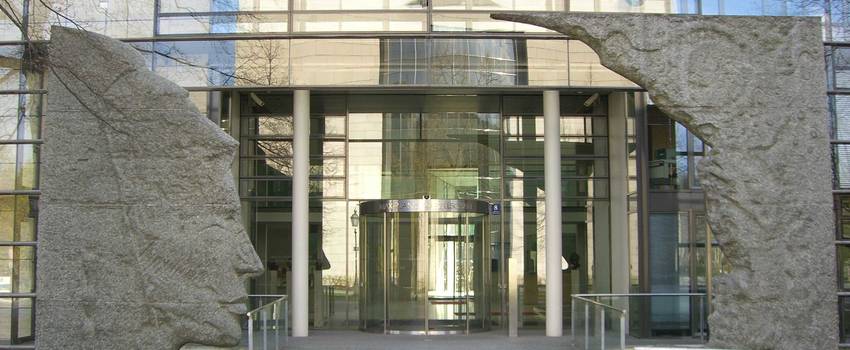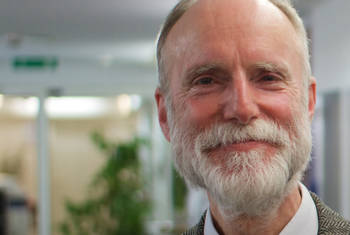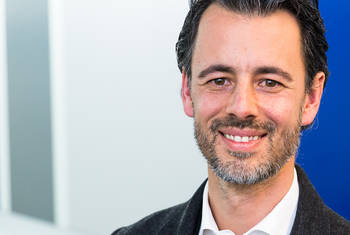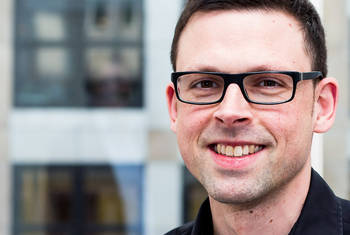Christoph Engel Can We Distribute Goods Efficiently Without Property Rights?
Christoph Engel is Director of the Max Planck Institute for Research on Collective Goods (Bonn, Germany) and has held teaching positions at several universities, including the position of Chair for Experimental Law and Economics at Erasmus University Law School in Rotterdam, Netherlands. He is also an Honorary Professor of the University of Osnabrück, Germany. His research focus includes Behavioral and Experimental Law and Economics. Engel has been serving as a member of several advisory boards, including the Academic Board to the German Minister of Economics and Labor, and is a member of the Academia Europaea.
Area of Research
Behavioural Law and Economics, Economic Law, Experimental Law and Economics
since 2013
Chairman
Humanities Section, Max Planck Society
since 2012
Chairman
Advisory Council Amsterdam Center of Law and Economics
since 2004
Honorary Professor
University of Osnabrück (Universität Osnabrück)
Faculty of Law
since 2003
Member, Academic Advisory Council
Zentrum für Europäische Wirtschaftsforschung, Mannheim
since 2003
since 2003
Member
University of Bonn (Rheinische Friedrich-Wilhelms-Universität Bonn)
Rechts- und Staatswissenschaftliche Fakultät
since 1997
Member, Academic Advisory Council
German Ministry of Economics
2012-2013
Sanders Chair
Erasmus University Rotterdam
Law School
2008-2009
Member of the Board
Vereinigung der Deutschen Staatsrechtslehrer
2002-2012
Member, Academic Advisory Council
Hochschule für Verwaltungswissenschaften Speyer
2008-2013
Member of the Board (Hochschulrat)
University of Erfurt (Universität Erfurt)
1997-2000
Co-Chairman, National Research Council, Steering Committee,
Global Networks and Local Values
1997-2003
Head
Max Planck Project Group for the Law of Common Goods
1992-1997
Full Professor
University of Osnabrück (Universität Osnabrück)
Chair for Media and Communications Law
1983-1992
Research Assistant / Research Associate, Public Law, Media and Communications Law
Max Planck Society (more details)
Max Planck Institute for Comparative and International Private Law
1980-1983
Research Assistant, Public Law and Public International Law
University of Tübingen (Eberhard Karls Universität Tübingen)
1992
Post Doctoral Thesis
University of Hamburg (Universität Hamburg)
1988
Doctoral Thesis
University of Tübingen (Eberhard Karls Universität Tübingen)
1987
Second State Exam in Law
University of Hamburg (Universität Hamburg)
1981
First State Exam in Law
University of Tübingen (Eberhard Karls Universität Tübingen)
- Book Series Law and Economics of International Telecommunications
- Book Series Common Goods: Law, Politics and Economics
- International Seminars on the New Institutional Economics
Prizes
- Friedwart Bruckhaus Förderpreis, Hanns Martin Schleyer Stiftung (1989)
Fellowships
- Member, Academia Europaea (2002)
 © Maximilian Dörrbecker
© Maximilian Dörrbecker
Max Planck Society
"The Max Planck Society is Germany's most successful research organization. Since its establishment in 1948, no fewer than 18 Nobel laureates have emerged from the ranks of its scientists, putting it on a par with the best and most prestigious research institutions worldwide. The more than 15,000 publications each year in internationally renowned scientific journals are proof of the outstanding research work conducted at Max Planck Institutes – and many of those articles are among the most-cited publications in the relevant field." (Source)
Institute
Max Planck Institute for Research on Collective Goods
"Many goods are not obviously best provided by unregulated markets. This does not necessarily imply that government does a better job. But research can do society a service in defining why markets have a hard time with some goods, and in comparing institutional arrangements aiming at their provision. In a precise way, the problem is defined by the concept of public goods. Capitalising on the theory of mechanism design, it can be further improved. Using experimental methods, it can be put into perspective. Yet some social dilemmas are better analysed in alternative categories. It may even be preferable to start analytically from the political decision to intervene into markets. The institute tackles these questions from the combined perspectives of economics, law and psychology. While the institute started with applications from environmental problems, current work focuses on antitrust, regulation and financial stability." (Source)
Map
Even in the absence of absolute property rights, ex-post bargaining may lead to efficient distribution of goods, CHRISTOPH ENGEL explains in this video. The findings of this research thus extend the domain of the Coase theorem. In the experiment, with a society of two individuals and a single commodity, a good ends up with the individual who values it most even if only relative property rights – i.e., rights only against other parties to a contract – are provided.
LT Video Publication DOI: https://doi.org/10.21036/LTPUB10057
Bargaining in the Absence of Property Rights: An Experiment
- Oren Bar-Gill and Christoph Engel
- MPI Collective Goods Preprint
- Published in 2015









